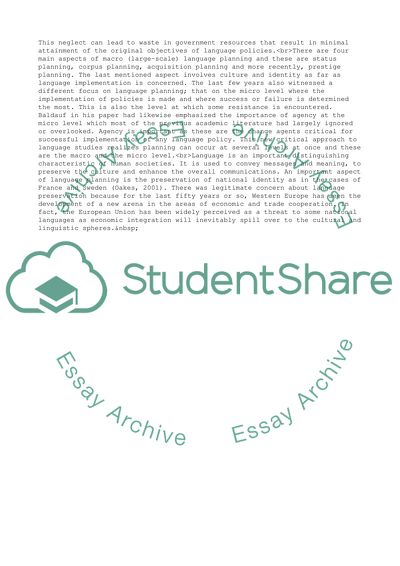Cite this document
(Macro Levels of Language Policy and Planning Assignment, n.d.)
Macro Levels of Language Policy and Planning Assignment. Retrieved from https://studentshare.org/business/1728597-micro-language-policy
Macro Levels of Language Policy and Planning Assignment. Retrieved from https://studentshare.org/business/1728597-micro-language-policy
(Macro Levels of Language Policy and Planning Assignment)
Macro Levels of Language Policy and Planning Assignment. https://studentshare.org/business/1728597-micro-language-policy.
Macro Levels of Language Policy and Planning Assignment. https://studentshare.org/business/1728597-micro-language-policy.
“Macro Levels of Language Policy and Planning Assignment”, n.d. https://studentshare.org/business/1728597-micro-language-policy.


